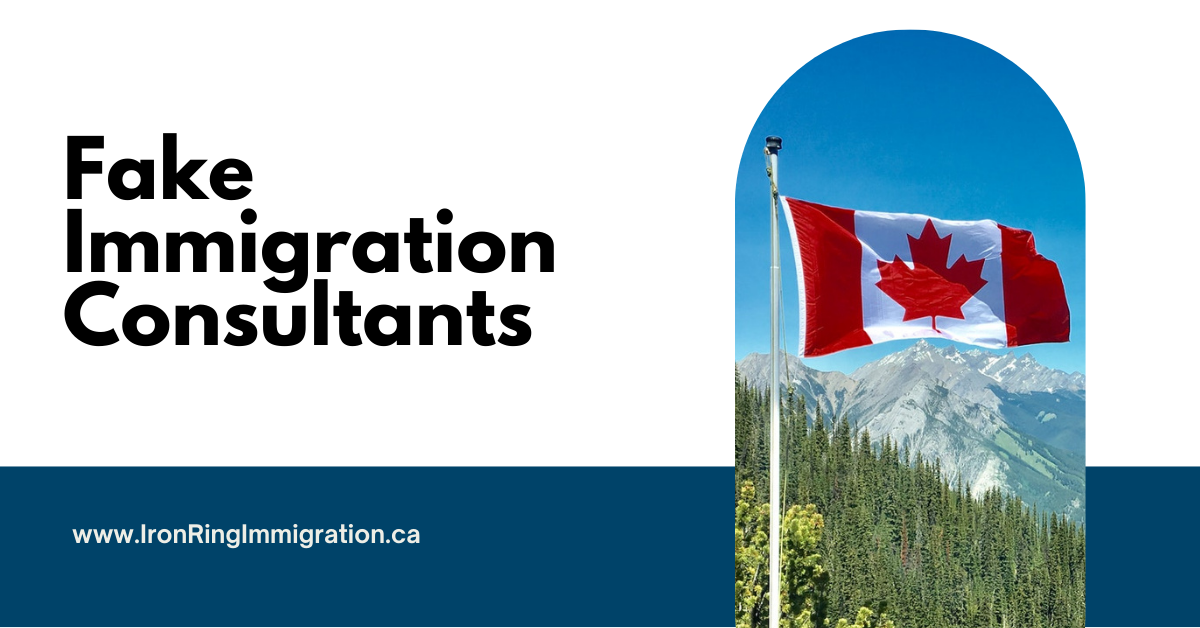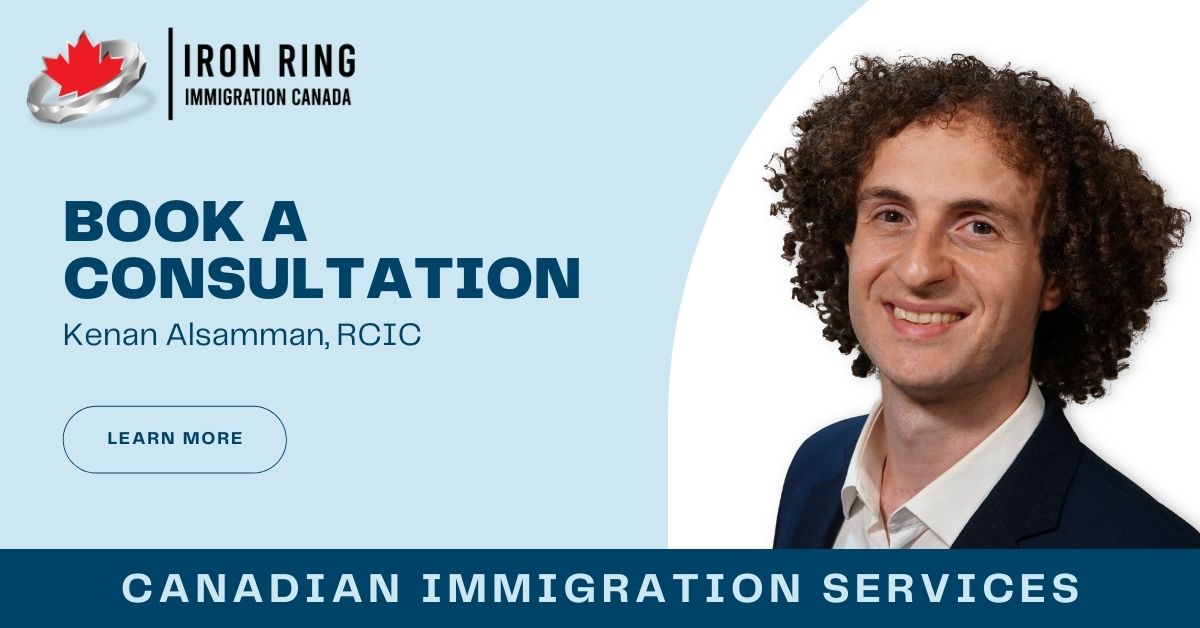

Fake Immigration Consultants
As many of you already know, Canadian immigration is highly popular around the world. Millions dream about one day setting foot in Canada to work, study, travel or live permanently. Due to the high demand of immigrating to Canada, fraudulent immigration consulting firms are set up in several countries trying to monetize this demand. There are countless stories of fake immigration consultants (or "ghost consultants" as some call them) charging exorbitant fees for immigration services, scamming clients and providing incorrect advice. Such unethical actions can create severe hardship in the client's life such as being banned from Canada, having their application rejected or losing large sums of money.
In this post, you will learn what many of the red flags are for detecting fraudulent Canadian immigration consultants and how to find authorized ones.
Table of Contents
Who is Authorized to be a Canadian Immigration Consultant?
According to section 91(1) and (2) of the Immigration and Refugee Protection Act, nobody is authorized to represent or advise a person regarding their Canadian expression of interest, proceeding or immigration application unless:
Which Regulatory Body is Designated by the Minister?
Since 2011, the Minister of Citizenship and Immigration designated the Immigration Consultants of Canada Regulatory Council (ICCRC) as the body responsible for regulating immigration consultants according to the Government of Canada website. Members in good standing with ICCRC can call themselves a Regulated Canadian Immigration Consultant (RCIC).
Anybody else who does not meet any of the three criteria above and is charging a fee for providing Canadian immigration advice and representation is most likely operating illegally. It does not matter whether they are operating in Canada or in a foreign country. There are only a few rare exceptions such as a student-at-law or an entity with an agreement with Her Majesty (Queen Elizabeth II) as stated in IRPA 91(3)(4).
Dealing with Fake Immigration Consultants
I strongly do not advise anyone to work with fraudulent immigration consulting firms who are not authorized to give advice or representation. Only work with immigration consultants who are members in good standing with ICCRC.
Since ghost consultants are located around the world, it can be difficult to shut them down or discipline them. However, even though they can promise things like job offers and visas at an affordable price, they are likely lying. Often times, they just want you to give them money first and then provide nothing in return. Other times, they may provide fraudulent documents that an immigration officer can easily detect as fake. If you submit fake documentation, you can be deemed inadmissible to Canada for misrepresentation and banned for five years as stated in IRPA 40(2)(a).
As these consultants are not licensed, there is limited course of action to punish them. Many government authorities in other countries simply do not care enough to shut them down or enforce legal action. However, if an immigration consultant is licensed by ICCRC, they can be disciplined, held accountable and potentially lose their license if they are found to contravene the laws and regulations. It may also be possible to redeem your money.
Common Red Flags of Fake Immigration Consultants
The following red flags indicate that you are likely dealing with a fake consultant. If you encounter someone who does any of the following, I suggest you avoid them.
1. Contingency billing
Under section 9.3 of the ICCRC Retainer Agreement Regulations, contingency billing is not allowed. This means that an immigration consultant cannot charge you based on the result of a government decision. For example, they cannot say "you will pay me $2000 after receiving the work permit." This is because visas are issued by officers and there is no guarantee that someone will get a visa issued to them. Immigration consultants are charged based on the service they provide to clients, not on the result.
2. Paying for a job offer
It is highly unlikely that the person you are talking to can guarantee a job offer from any legitimate Canadian employer. For most jobs, the employer has to apply for a Labour Market Impact Assessment (LMIA) to show that a Canadian citizen or permanent resident is unavailable to fill this position. This process is done by Employment and Social Development Canada (ESDC) and requires an officer to assess the job offer.
3. Guarantee a visa or permit
This is a definite red flag. No immigration consultant can guarantee a positive outcome for an application. Visas are issued by officers, never consultants. The decision to issue a visa is never up to an immigration consultant so they cannot possibly guarantee that you will be issued one. An officer has to do an examination and ensure that all the necessary criteria have been met.
How to Find a Regulated Canadian Immigration Consultant
Every licensed member of ICCRC can be found in the Public Register found on the ICCRC website here: https://iccrc-crcic.ca/find-a-professional/
You can search by name, membership number or company to try and find a particular RCIC. For example, when you search my last name, Alsamman, you will find my name listed:


As you can see, my Consultant Identification number is R707864 and I am an active member of ICCRC. If you click the Contact link, you will see this:


There are thousands of other RCICs who are authorized to provide immigration advice and representation for a fee. Also, a friend or family member may represent you in your immigration application, as long as they are uncompensated (not being paid). They can fill out the Use of Representative Form (IMM 5476) to notify Immigration, Refugees and Citizenship Canada (IRCC) that they are an authorized representative of the applicant. If you suspect that someone is unauthorized, ask them for their ICCRC membership number and search for it in the Public Register. If you cannot find them, or the names do not match, they are likely unauthorized.
Thank you all for reading this post. I hope you learned how to identify potential fraudulent immigration consultants so that you can protect yourself and others from being scammed or mislead by unauthorized representatives.
If you are interested in immigrating to Canada, feel free to click the picture below to start booking a consultation with a Regulated Canadian Immigration Consultant!

4 replies to "Beware of Fake Immigration Consultants"
working in Canada
Thank you so much for very important advice. Truly i’m grateful to ALLAH for receiving your very efficient advice & consults also grateful to you. I’m very interested to go to in Canada. But i have no IELTS. Have any criteria without IELTS for going to Canada. I have an IELTS certificate that i achieved 22 yeats ago very simple score 4.5. I’m waiting for your effective advice & direction.
Thank you so much,,
[…] the past, we have written about how to avoid fake immigration consultants. In that post, we mentioned that only immigration consultants who are licensed by ICCRC can advise […]